STFU: The Power of Keeping Your Mouth Shut in an Endlessly Noisy World
by Dan Lyons
 I’m in the midst of reading and listening to STFU: The Power of Keeping Your Mouth Shut in an Endlessly Noisy World by New York Times bestselling author Dan Lyons. (I often switch between reading a physical book and listening to the author read it on Audible, depending on whichever mode works best for me at any given time.)
I’m in the midst of reading and listening to STFU: The Power of Keeping Your Mouth Shut in an Endlessly Noisy World by New York Times bestselling author Dan Lyons. (I often switch between reading a physical book and listening to the author read it on Audible, depending on whichever mode works best for me at any given time.)
Why I love it: The author is an admitted chronic overtalker — someone who can’t shut up even when they know continuing to talk will get them into trouble. While I don’t think I suffer from the same affliction, I have become painfully aware of my limited ability to genuinely listen to others. I’ve also become concerned about the negative impacts of social media on our world. Lyons addresses in particular how social media is engineered to keep us engaged — and the best way to do that is to make us angry.
Not only is the book insightful and sometimes laugh-out-loud funny, Lyons introduced me to the International Listening Association (ILA) via an interview he had with a board member, which he recounts in his book. I’ve since had two ILA interviews — with the president of the association and the board member Lyons talks about in his book. They had wonderful ideas to share about how to foster listening in our homes, workplaces, and in the design of business events. I can’t wait to publish what I’ve learned from them and others about listening in our January/February issue. — Michelle Russell, editor in chief
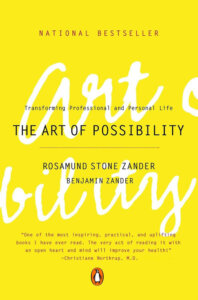 The Art of Possibility
The Art of Possibility
by Rosamund Stone Zander and Benjamin Zander
The title is quite ambitious in its promise, but this one truly delivers. A book full of music, rules that are easy to make your own, and lessons that can transform your life. If you want to read just one book in 2024, choose possibility. — Magdalina Atanassova, digital media editor
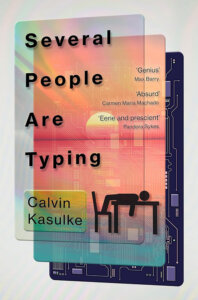 Several People Are Typing
Several People Are Typing
by Calvin Kasulke (2021)
One of the most entertaining books I’ve read this year is Several People Are Typing, an offbeat workplace comedy told entirely through Slack messages. Part satire and part science fiction, the story provides hilarious commentary on modern work life, from technical difficulties to quirky coworkers. — Casey Gale, managing editor
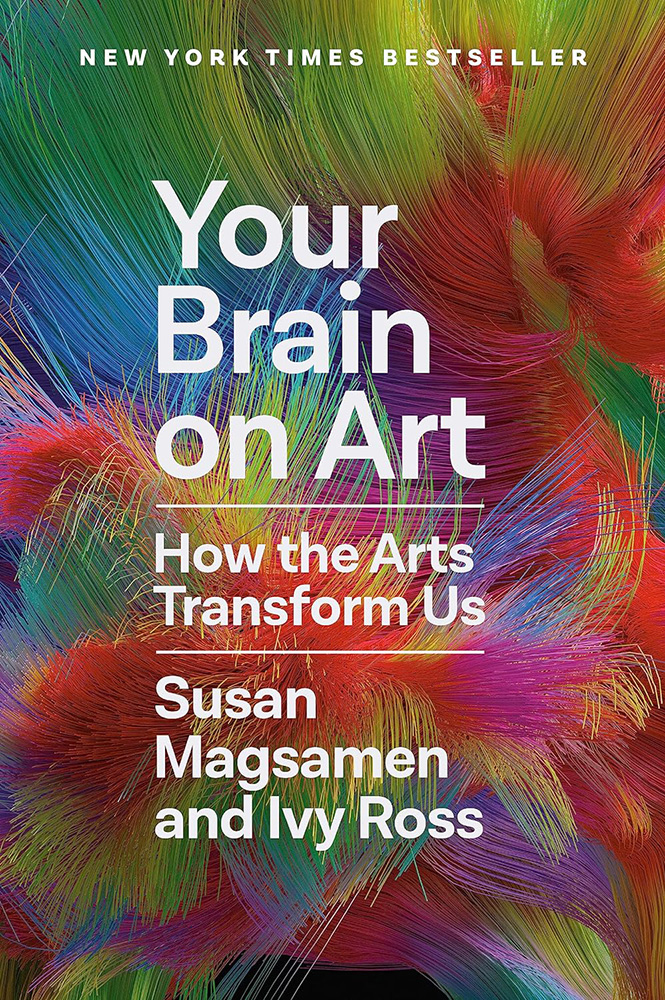
Your Brain on Art: How the Arts Transform Us
by Susan Magsamen
Reading is a little bit of a stretch to describe how I am approaching Your Brain on Art: How the Arts Transform Us, by Susan Magsamen, founder and director of the International Arts and Mind Lab at the Center for Applied Neuroaesthetics at John Hopkins University School of Medicine, and Ivy Ross, vice president of design for hardware products at Google. I am skipping around in it, drinking in the gorgeous illustrations and collecting the evidence for how the arts — including music, theater, visual arts, sculpture, dance and maybe some I’ve missed — benefit our health, reduce stress, strengthen connections, and help us learn. — Barbara Palmer, deputy editor
Climate Travels: How Ecotourism Changes Mindsets and Motivates Action
by Michael M. Gunter, Jr.
A History of the World in 500 Walks
by Sarah Baxter
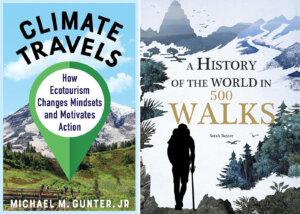 I have a few books on my nightstand that I’m currently rotating between, but the two I’m picking up most frequently right now are Climate Travels: How Ecotourism Changes Mindsets and Motivates Action by Michael M. Gunter, Jr. and A History of the World in 500 Walks by Sarah Baxter. The first is a deep dive into the urgency and complexity of climate change, illustrated by several hyperlocal examples from around the U.S — increased flooding in Southeastern coastal areas, like in my city of Charleston, SC, expected to only worsen with rising sea levels is one. I’m enjoying how Gunter skips dwelling too intensely on the doom-and-gloom details of these crises and instead provokes the reader to take a surprising action — travel. “We need to see the threat ourselves,” he writes, arguing that conscientious travel will do more to inspire ideas and solutions than sitting still. “Our best option to tackling the climate crisis…lies at the local level, aided by travel experiences that broaden understanding of our surroundings — and how our daily actions affect them.”
I have a few books on my nightstand that I’m currently rotating between, but the two I’m picking up most frequently right now are Climate Travels: How Ecotourism Changes Mindsets and Motivates Action by Michael M. Gunter, Jr. and A History of the World in 500 Walks by Sarah Baxter. The first is a deep dive into the urgency and complexity of climate change, illustrated by several hyperlocal examples from around the U.S — increased flooding in Southeastern coastal areas, like in my city of Charleston, SC, expected to only worsen with rising sea levels is one. I’m enjoying how Gunter skips dwelling too intensely on the doom-and-gloom details of these crises and instead provokes the reader to take a surprising action — travel. “We need to see the threat ourselves,” he writes, arguing that conscientious travel will do more to inspire ideas and solutions than sitting still. “Our best option to tackling the climate crisis…lies at the local level, aided by travel experiences that broaden understanding of our surroundings — and how our daily actions affect them.”
For similar reasons, I’m also enjoying A History of the World in 500 Walks, an encyclopedia of pilgrimages organized by historical era that invites readers to explore the world via the most primitive, and least impactful, means available: their feet. I’m taking notes for future travels (the hike to Tiger’s Nest monastery hidden in the Bhutanese Himalayas, for one) but I’m also enjoying learning about the wonderful journeys waiting for me in my own backyard. The southern trailhead of the Appalachian Trail lies a few hours west of me, and its mountains date back 480 million years, making them the oldest in North America. Traversing the entire 2,190-mile trail is no easy feat, though, with the months-long journey equivalent to scaling Mount Everest sixteen times in terms of total elevation gain and loss. I think I’ll opt for a day hike instead. — Jennifer N. Dienst, senior editor
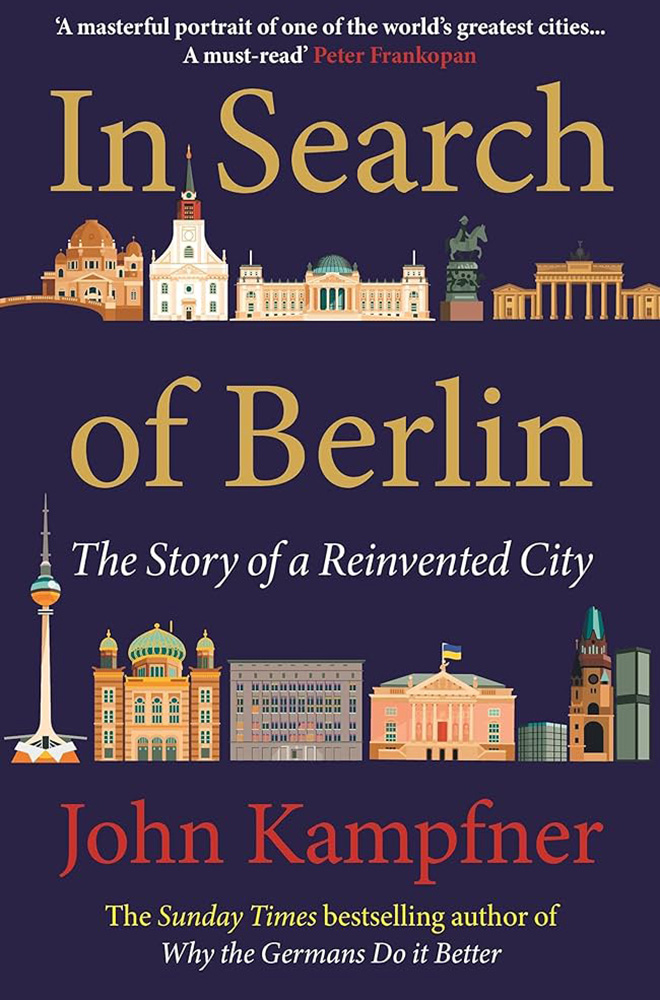
In Search of Berlin: The Story of a Reinvented City
by John Kampfner
As a recent transplant to Berlin, I find myself reading and rereading sections of John Kampfner’s In Search of Berlin: The Story of a Reinvented City. The book is pointing me to some the city’s hidden gems that many visitors may never see, but it is much more than a travel guide. No detail is too small for Kampfner as he explores the 800-year history of this fascinating city and of the people who have populated it. Through his stories I’ve learned why I am so drawn to Berlin: I, like the city Kampfner writes “is still not complete,” am still searching. — Curt Wagner, digital editor

